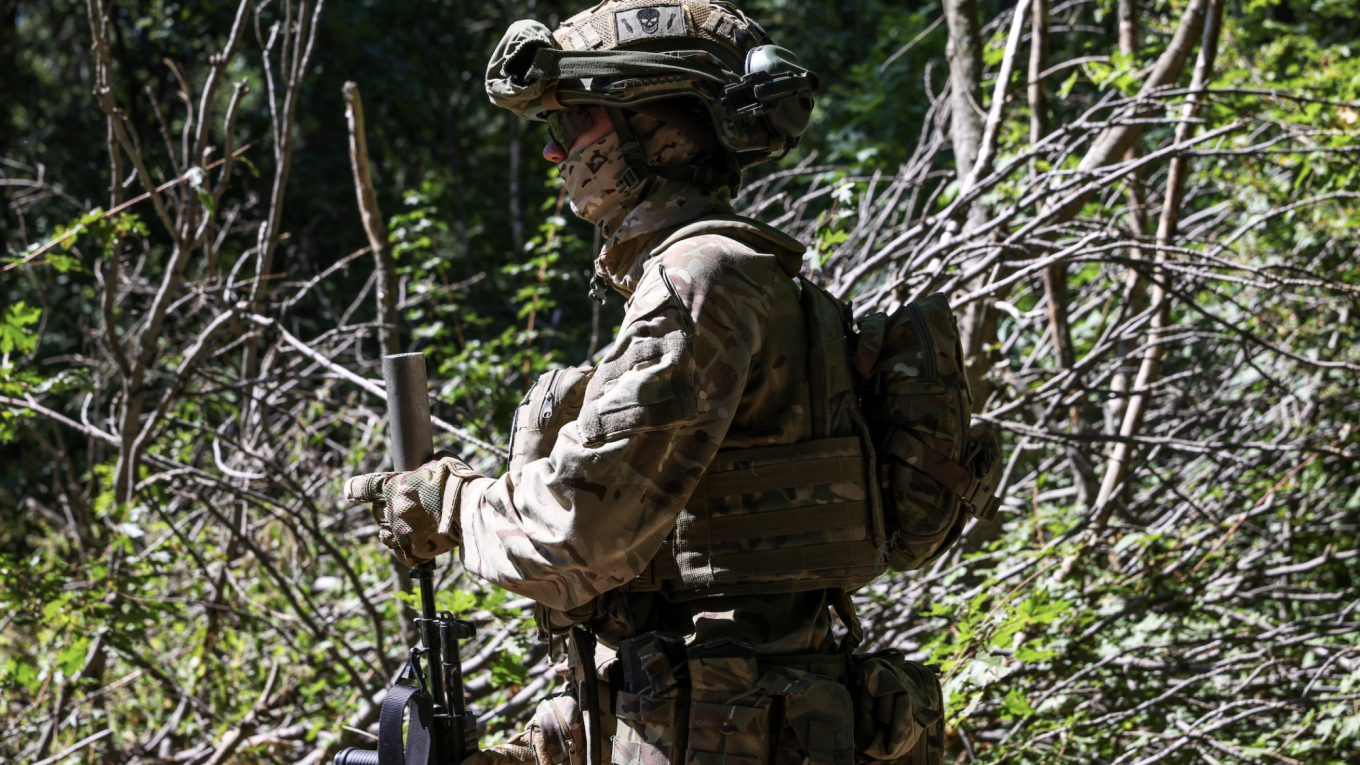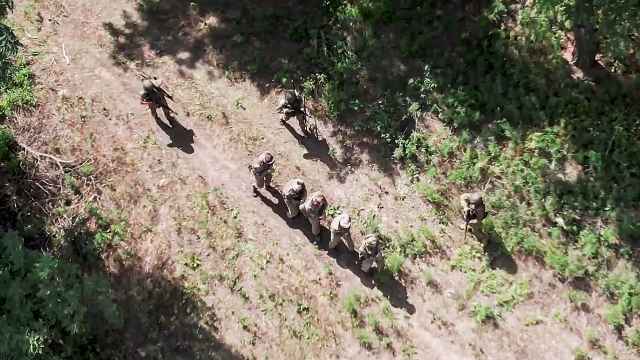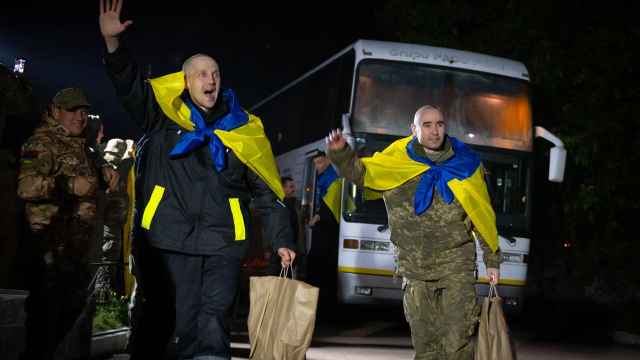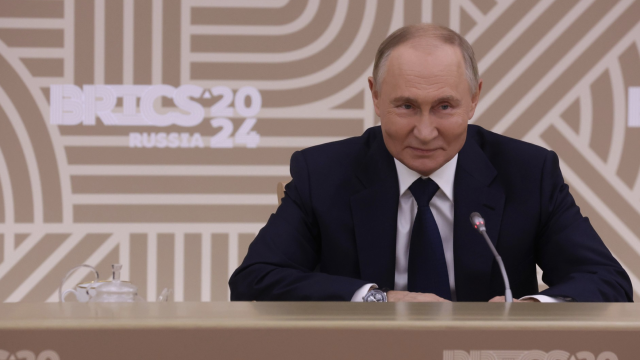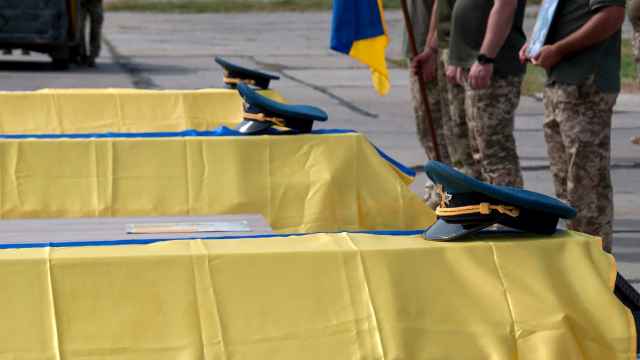As Ukraine’s offensive in Russia’s Kursk region has dominated headlines and offered a morale boost for Kyiv’s supporters, Moscow’s troops have continued to press forward in eastern Ukraine’s Donetsk region.
The Russian army on Tuesday announced the capture of the eastern Ukrainian town of New York, a claim that was confirmed by data from the Ukrainian crowd-sourced tracking site DeepState.
This latest gain brings Russian troops one step closer to the city of Pokrovsk, a strategic stronghold and logistics hub for the Ukrainian army.
The Moscow Times explains what Russia’s latest advances in the Donetsk region — and the potential capture of Pokrovsk — mean for the war:
What is happening on the front lines in the Donetsk region?
Donetsk, one of four Ukrainian regions that Moscow claimed to have annexed in 2022 despite not having full control over any of them, has seen some of the most intense combat of Russia’s full-scale invasion.
Kyiv, facing manpower and ammunition shortages after months of attritional fighting, has struggled to hold the front line in the region. While Ukrainian authorities likely hoped the Kursk region offensive would relieve pressure elsewhere on the battlefield, Russia has continued its advance in Donetsk.
Over the past week, the Russian army has captured an area of about 80 square kilometers and seized control of the settlements of Mykolaivka, Zhelanne, Orlivka, Lysychne, Ivanivka and Svyrydonivka, according to DeepState — Russia’s most significant military advance since May.
“Based on the intensity of the assaults, it can be assumed that the Russian army intensified their attacks in this area after they realized that the main part of the Ukrainian reserves was engaged on another section of the front,” said Alexey Alshanskiy of the Conflict Intelligence Team (CIT), an independent organization that conducts open-source investigations of the Russian military.
“At the very least, such an observation could have prompted them to take more decisive actions,” Alshanskiy told The Moscow Times.
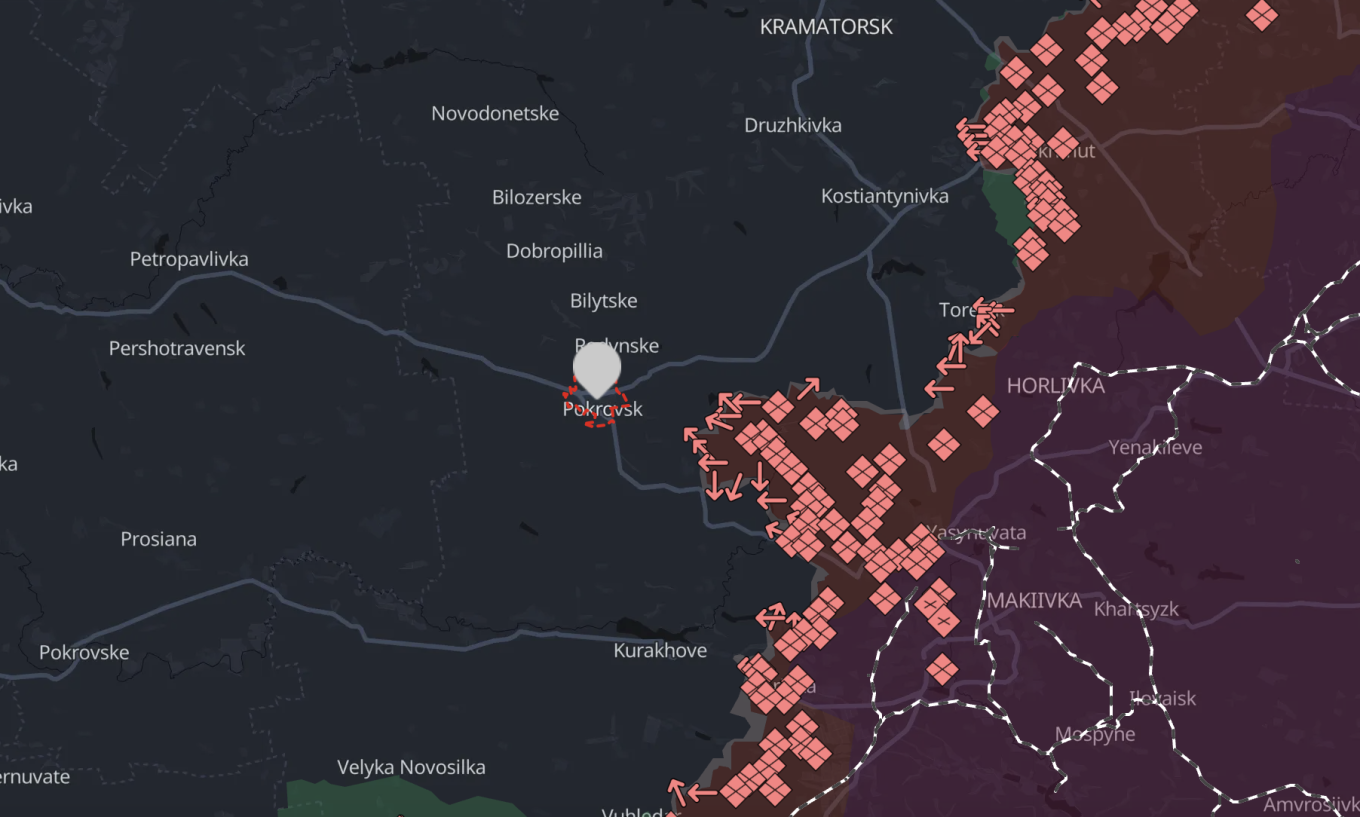
What about other frontline areas in the war?
Russian forces’ progress in other frontline areas of Ukraine has been limited. Moscow’s advances in the Luhansk region and southern areas of Ukraine have slowed significantly, while penetration further into the Kharkiv region has come to a stalemate.
What is happening in Pokrovsk?
Ukrainian authorities have started to evacuate Pokrovsk and surrounding areas this week amid the Russian advance.
On Monday, Vadym Filashkin, the Ukrainian governor of Donetsk, ordered the "compulsory" evacuation of children and their parents from Pokrovsk and about a dozen surrounding villages.
Filashkin said more than 53,000 people live in the area, including almost 4,000 children.
The head of Pokrovsk’s military administration, Serhiy Dobryak, warned last week that Russian forces were just over 10 kilometers from the city’s outskirts and urged remaining residents to evacuate.
Why is the city important for Russia?
Israeli military expert David Sharp said that the full capture of the Donetsk region is among the Kremlin’s top priorities, making Pokrovsk a critical target.
“If we consider the battle for the Donetsk region as a whole, the capture of Pokrovsk and the advance toward it is one of the key points in this battle,” Sharp explained.
“Pokrovsk is a large city, so advancing toward it means gaining territory. But it could also be an important defense center, of course, if it is properly organized," he added.
However, analyst Alshanskiy argued that despite Pokrovsk’s strategic significance, its capture may not necessarily translate into a decisive advantage for Russia.
“We must remember that in the past, each captured city was perceived as playing a ‘key role.’ However, we see that after the withdrawal from Avdiivka, for example, the front did not collapse,” Alshanskiy explained.
“The Ukrainian Armed Forces continued their defense, and it took the Russian forces months to reach their current position at a significant cost.”
How likely is Russia to capture Pokrovsk?
“The trends of the past few weeks suggest quite clearly that the Russian army will likely come very close to Myrnohrad and probably to Pokrovsk as well,” Sharp told The Moscow Times.
Sharp noted that Russia’s steady advance toward Pokrovsk could be disrupted if forces are suddenly withdrawn to aid in the defense of Kursk or if Ukraine deploys additional formations to stabilize the front.
Analyst Alshanskiy said that it would be “impossible” for Ukraine to completely halt Russia’s advances in the area.
“It can only be slowed down,” said Alshanskiy. “The Ukrainian army frequently conducts counterattacks [in the area], but this only slows down the Russian advance because Ukrainian forces are unable to consolidate and hold the positions they have regained.”
Both Alshanskiy and Sharp agreed that Russia’s capture of Pokrovsk is not certain.
“While it is more than likely that [the Russian army] will come close to Pokrovsk, the fact that they will take control and capture the city isn’t at all certain, especially if the Ukrainians take appropriate measures,” said Sharp, pointing to Russia’s ongoing attempts to seize the small Ukrainian town of Chasiv Yar.
“When it comes to assaults, it's an extremely difficult task, even when dealing with small towns, as we've seen in this war.”
AFP contributed reporting
A Message from The Moscow Times:
Dear readers,
We are facing unprecedented challenges. Russia's Prosecutor General's Office has designated The Moscow Times as an "undesirable" organization, criminalizing our work and putting our staff at risk of prosecution. This follows our earlier unjust labeling as a "foreign agent."
These actions are direct attempts to silence independent journalism in Russia. The authorities claim our work "discredits the decisions of the Russian leadership." We see things differently: we strive to provide accurate, unbiased reporting on Russia.
We, the journalists of The Moscow Times, refuse to be silenced. But to continue our work, we need your help.
Your support, no matter how small, makes a world of difference. If you can, please support us monthly starting from just $2. It's quick to set up, and every contribution makes a significant impact.
By supporting The Moscow Times, you're defending open, independent journalism in the face of repression. Thank you for standing with us.
Remind me later.



